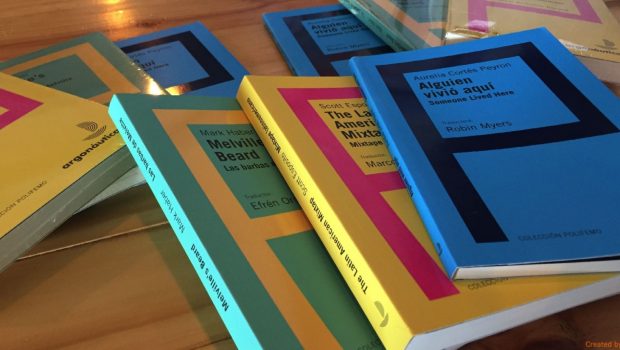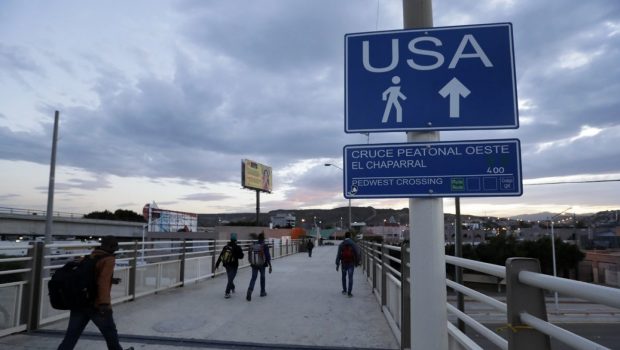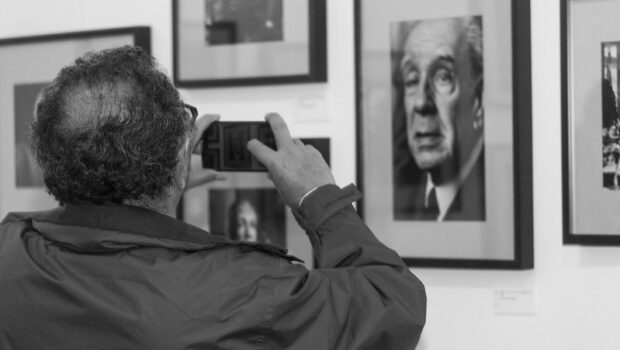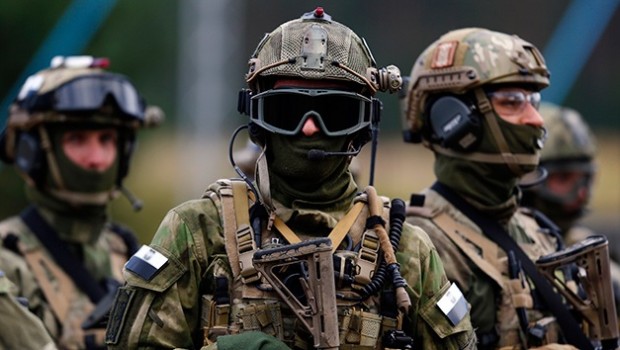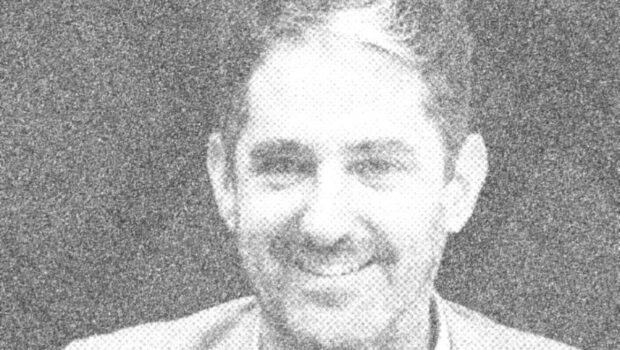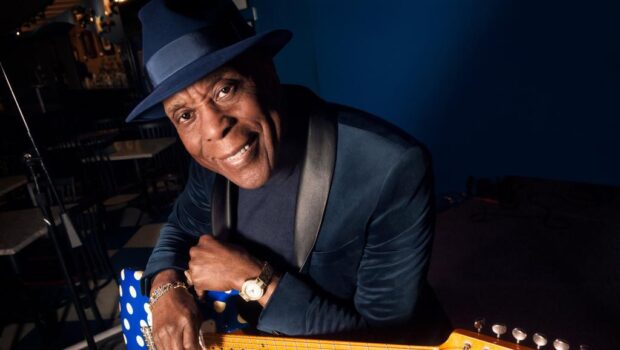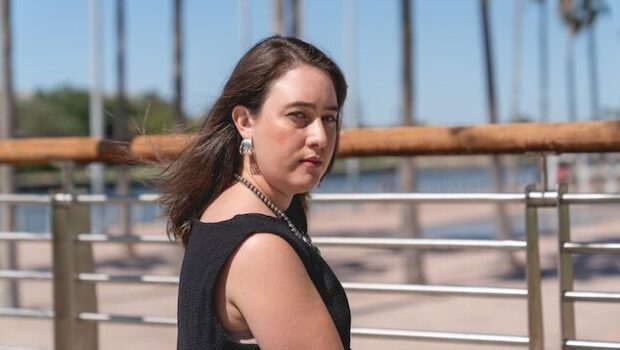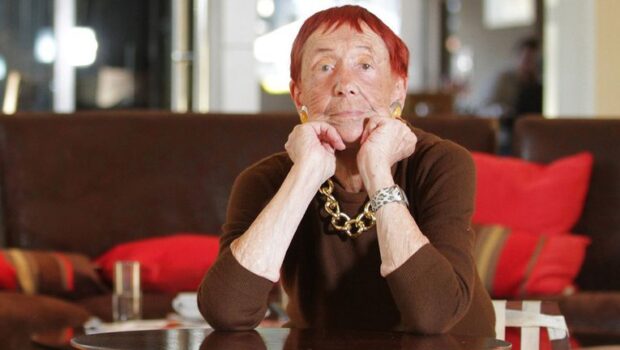Wherever I Go, It’s Always Night
A donde voy siempre es de noche
Bernardo Esquinca
Translated by Tanya Huntington
The man walked along the shoulder of the highway, hefting his backpack. Two cars passed by, and he didn’t so much as look at them. Everardo found it strange that he wasn’t hitching for a ride: there was nothing but trees for miles around. Out of curiosity, he slowed the Pathfinder down until he was next to the man, then lowered the window on the co-pilot side.
“Where are you headed?”
The guy had a thick beard and wore a cap with earflaps. He seemed to be submerged in deep meditation. He fixed his intense blue gaze on Everardo, then answered:
“Into the mountains.”
Everardo stopped the car and unlocked the door.
“I’ll give you a lift. At that rate, you won’t get there until after dawn.”
The man climbed in and set his pack down on the back seat.
“Where I’m headed, it’s always night,” he said, his voice rasping. “My name is Jacobo.”
They shook hands. Everardo stepped on the gas again.
“What do you do for a living?”
“I’m a speleologist. I’ve spent a great deal of my time exploring underground caves.”
“Why are you out on your own? Aren’t you guys supposed to be in groups?”
Jacobo stared at the landscape through the window: pines, yellow hills, cloudy afternoon.
“I prefer to travel alone. I’m a bounty hunter.”
“Whoa, that sounds like something out of a Western… don’t tell me you’re out searching for gold mines.”
“No, it’s not like that,” Jacobo ran a hand over his beard. “One day, I read an ad in the paper from a lady who was offering a reward for the body of her son: a young speleologist who’d had an accident the month before. The kid had gotten pretty far, and the rescue workers were unable to recover the body. Not to boast, but I hold the national record for descents. Thanks to me, that lady was able to bury her son… After that, I made it my profession: now I travel to different regions, salvaging the cadavers of my more unfortunate colleagues.”
Everardo lit a cigarette. After a curve, the mountains appeared on the horizon. He assessed the weak radiance of the skies: it wouldn’t be long before nightfall.
“And now you’re on your way… to another job?”
“Exactly.”
“What happened?” Everardo asked, not bothering to hide his growing morbid curiosity.
Jacob fixed his blue eyes on him. His gaze was cold: it seemed to have been forged on snow-packed peaks, not in the caves where primates lit the first bonfires.
“It’s not a nice story.”
Everardo took three puffs on his cigarette and instinctively decelerated, as if he were trying to show this stranger that he was in no hurry to get rid of him.
“Come on, tell me. It will help me stay awake, I have a long way to go and I’ll be driving all night…”
“You haven’t told me what you do for a living.”
“I’m a photographer.”
“Journalist?”
“No…” Everardo hesitated. “I shoot models.”
“An enviable profession.”
Jacobo lay back in his seat and crossed his arms. His countenance took on the same meditative expression he wore when Everardo picked him up on the shoulder of the highway. He continued:
“A week ago, three men entered a series of caves in these mountains that haven’t been explored much. They were dragging themselves single file down a narrow passage, with barely enough room for their own bodies, when an enormous rock came loose from the ceiling and cracked the spine of the guy in the middle. He was stuck; his companions were totally unable to dislodge the rock. The guy who was last in line, let’s call him Speleologist Number Three, backed out and went for help. The guy who was up ahead, Number One, was trapped; the body and the rock were in the way behind him and after a brief exploration, he realized there wasn’t any passage through on his end. Number Two had fainted because of the impact, but regained consciousness a few minutes later and started to cry out in agony. Number Three came back hours later with bad news: the rescuers couldn’t reach them. He left them medicines and tranquilizers, but it was no use: Number Two kept on howling. Number Three came back the first four days to see how they were doing. After that, he didn’t: the stench and the screams were unbearable. Number One had only two options: either wait for his companion to die, or kill him. The only way he could get out of there was using his piolet to break through the rock that was crushing his colleague…”
“Kill him?” Everardo ventured, appalled. “I could never do that…”
“When you think about it, his second option wasn’t that farfetched: imagine the desperation of Number Two, immobilized, nailed to the ground like a butterfly in a collection. Sheer torture.”
“So, what happened in the end?” Everardo tossed his cigarette butt out the window and turned on the headlights. The mountains awaited them a few miles away, silent, ignorant of the drama that had played out in their entrails.
“The outcome will have to wait,” Jacobo said. “Can you stop for a second? I need to take a leak.”
Everardo pulled over, turned off the engine and activated the flashers. Once he saw Jacobo was behind a tree somewhere, he had an impulse: he leaned into the back seat and quickly rifled through the backpack. His hand touched something cold and sharp; he extracted the piolet and observed it under the flame of his lighter: the tip was stained with dried blood. He felt a stab in his stomach, and his mind went blank for a few moments; in a reflex gesture, he put the tool away and closed the flap on the backpack. Out of the corner of his eye he saw Jacob’s shadow, his arm stretching to open the door. He turned around and placed both hands on the steering wheel.
“Ready,” the speleologist said, rubbing his hands together and sitting down beside him. “It’s fucking cold out there, I’m glad you picked me up. Shall we?”
Everardo started the engine, and the Pathfinder gathered speed. He felt Jacobo’s gaze blanketing him like a blue mist; his eyes observed him guardedly.
“You won’t tell anyone, right?” The speleologist said finally, after a prolonged silence.
Everardo shook his head. Night had fallen, dissolving the landscape. It was just the two of them and the road.
“I lied to you… I do work in a team. Although this time, we weren’t trying to remove a body, it was just for fun. Pretty ironic, right?”
“I lied to you too: I work for a newspaper in the crime section, but right now I’m on vacation. I understand what you had to do…”
The two men looked at each other for a moment in the darkness. Everardo smiled at Jacobo knowingly.
“There’s one more thing I ought to clarify,” Jacobo said. “You think, because you saw the bloodstain on the piolet, that I’m Speleologist Number One, but actually I’m Number Three.”
“And the blood?”
“You didn’t examine the backpack carefully. Inside is the head of Speleologist Number One. He waited for Number Two to die, then came back up. But there I was, waiting for him… I never went looking for any rescue party, and I didn’t bring them any medicine.”
Everardo swallowed hard. His nervous hands clenched the wheel.
“Why?”
“I could say it was the money: they’d been taking advantage of me for years, cheating me out of my share of the reward money… But somehow, I was overtaken by madness. I didn’t plan it, I simply took advantage of the situation.”
“And why are you going back now?”
“You’re the guy who works the crime section. Didn’t they teach you that murderers always return to the scene of the crime?”
Everardo sighed. He had one more question:
“What are you going to do with me?”
“Nothing,” Jacobo responded. His voice sounded tired. “I left the bodies in a cavern deep underground. No one could prove the story… if you even dared to tell it.”
Everardo noted how the headlights illuminated the gray shadows cast by the mountains as they drew near. Jacobo continued:
“You may want to consider that this could also be just one of those stories people tell on the road, or around a campfire. You never actually saw the head in the backpack, and the blood on the piolet could be clay and mud. What version would you prefer to stick with?”
After thinking it over, Everardo answered:
“I don’t know… I guess it’s more interesting to come across a murderer than a liar.”
“Don’t sell liars short: they’re great storytellers. In any case, whatever you believed says a lot more about you than about me. That’s the key to any story.”
Outside the Pathfinder, the presence of the night loomed. Everardo and Jacobo exchanged one last look, then concentrated on the lines along the highway. For the remainder of the trip, not another word was said.
*This short story will be published this summer in a bilingual collection by Editorial Argonáutica entitled The Owls Are Not What They Seem. Those who will be in New York City on June 29 are cordially invited to join the author for a presentation to be held at the McNally Jackson Booksellers and Café, 52 Prince Street, SoHo at 7 p.m.
© Literal Publishing
El hombre caminaba por la orilla de la carretera con su mochila al hombro. Dos autos pasaron junto a él y ni siquiera los miró. A Everardo le extrañó que no pidiera aventón: sólo había árboles a kilómetros a la redonda. Sintió curiosidad. Disminuyó la marcha de la camioneta hasta colocarse a su lado y bajó el vidrio del copiloto.
—¿A dónde vas?
El sujeto tenía barba espesa y usaba un gorro con orejeras. Parecía estar sumido en meditaciones profundas. Lo miró con unos intensos ojos azules y respondió:
—A las montañas.
Everardo detuvo el auto y levantó el seguro de la puerta.
—Te llevo, si continúas a ese paso llegarás en la madrugada.
El hombre subió y colocó la mochila en el asiento trasero.
—A donde voy siempre es de noche –dijo, con voz rasposa–. Me llamo Jacobo.
Se estrecharon la mano. Everardo volvió a pisar el acelerador.
—¿A qué te dedicas?
—Soy Espeleólogo. Paso buena parte de mi tiempo metido en cuevas subterráneas.
—¿Y por qué tan solo? ¿No se supone que ustedes andan en grupo?
Jacobo miró concentrado el paisaje por la ventana: pinos, colinas amarillas, la tarde nublada.
—Prefiero moverme solo. Soy un cazarecompensas.
—Carajo, eso suena a película del Viejo Oeste… No me digas que te dedicas a buscar minas de oro.
—Para nada –Jacobo se pasó una mano por la barba–. Un día leí en el periódico el anuncio de una señora que ofrecía una recompensa por el cadáver de su hijo: un joven espeleólogo que se había accidentado un mes atrás. El muchacho llegó muy lejos y los rescatistas no pudieron recuperar el cuerpo. No es por presumir, pero poseo una marca nacional de descenso. Gracias a mí, la señora pudo enterrar a su hijo… Después lo convertí en mi trabajo: ahora voy por distintas regiones sacando los cadáveres de mis desafortunados colegas.
Everardo encendió un cigarro. Tras una curva aparecieron en el horizonte las montañas. Miró el débil resplandor del cielo: no tardaría en anochecer.
—Y ahora vas a… ¿trabajar?
—Exactamente.
—¿Qué sucedió? –preguntó Everardo sin esconder su creciente morbo.
Jacobo le clavó los ojos azules. Su mirada era fría: parecía forjada en cimas colmadas de nieve y no en cavernas donde los primates encendieron las primeras fogatas.
—No es una historia agradable.
Everardo le dio tres caladas al cigarro y desaceleró instintivamente, como si quisiera demostrarle a ese extraño que no tenía prisa en bajarlo del coche.
—Anda, cuéntame. De todos modos, no dormiré, voy lejos y pasaré la noche conduciendo…
—Aún no me has dicho a qué te dedicas tú.
—Soy fotógrafo.
—¿Periodista?
—No… –Everardo titubeó–. Retrato modelos.
—Un trabajo envidiable.
Jacobo se recostó en el asiento y cruzó los brazos. Su rostro adquirió la misma expresión meditabunda que tenía cuando Everardo lo recogió en la orilla de la carretera. Continuó:
—Hace una semana, tres hombres entraron en un conjunto de cuevas poco explorado de estas montañas. Mientras se arrastraban en fila por un pasaje estrecho en el que sólo cabían sus cuerpos, una piedra enorme se desprendió del techo y le rompió la espalda al que iba en medio. Quedó atorado; a sus compañeros les fue imposible mover la roca. El sujeto que iba al último de la fila, a quien llamaré el espeleólogo número tres, retrocedió y fue a buscar ayuda. El que iba hasta adelante, el número uno, no podía salir; el cuerpo y la roca que tenía enfrente se lo impedían. Luego de una breve exploración descubrió que de su lado ya no había camino. Tras recibir el impacto, el número dos se desmayó, pero cuando recuperó la conciencia algunos minutos después, comenzó a dar alaridos. El número tres regresó horas más tarde con una mala noticia: los rescatistas no habían podido llegar hasta ellos. Les dejó medicinas y calmantes, pero de nada sirvieron: el número dos no paraba de aullar. El número tres volvió los cuatro primeros días para ver cómo se encontraban. Después no regresó más: el hedor y los gritos eran insoportables. El número uno sólo tenía dos opciones: esperar a que su compañero muriera o matarlo. La única manera en que podía salir de ahí era utilizando el piolet para romper la roca que aplastaba a su colega…
—¿Matarlo? –dijo Everardo, consternado–. Yo no podría hacer eso…
—Si lo piensas bien, la segunda opción no es tan descabellada: imagina la desesperación del número dos, inmovilizado, clavado en el suelo como la mariposa de un coleccionista. Un suplicio.
—¿Y qué ocurrió finalmente? –Everardo tiró la colilla de su cigarro por la ventana y encendió las luces del auto. Las montañas aguardaban a unos kilómetros, silenciosas, ajenas al drama que se había vivido en sus profundidades.
—El desenlace tendrá que esperar –dijo Jacobo–. ¿Puedes detenerte un segundo? Necesito orinar.
Everardo orilló la camioneta, apagó el motor y activó las intermitentes. Mientras observaba cómo Jacobo se perdía detrás de un árbol, tuvo un impulso: se inclinó sobre el asiento trasero y revisó la mochila con movimientos rápidos. Su mano tocó algo frío y filoso; extrajo el piolet y lo observó bajo la flama del encendedor: la punta estaba manchada con sangre seca. Sintió una punzada en el estómago y su mente se bloqueó unos segundos; en un acto reflejo guardó la herramienta y cerró la mochila. Por el rabillo del ojo vio la sombra de Jacobo estirando el brazo para abrir la puerta. Giró el cuerpo y colocó las manos en el volante.
—Listo –dijo el espeleólogo, frotándose las manos y sentándose a su lado–. Está haciendo un frío de su puta madre, qué bueno que me recogiste. ¿Nos vamos?
Everardo encendió el vehículo y arrancó. Sintió que la mirada de Jacobo lo envolvía como una neblina azul; sus ojos lo observaban con recelo.
—No se lo dirás a nadie, ¿verdad? –dijo al fin el espeleólogo, tras un prolongado silencio.
Everardo negó con la cabeza. La noche se había cerrado, disolviendo el paisaje. Sólo estaban ellos dos y la carretera.
—Te mentí… Trabajo en equipo. Aunque esta vez no intentábamos sacar un cuerpo, era sólo diversión. Qué ironía, ¿no?
—Yo también te mentí: trabajo para un periódico, en la sección de nota roja, pero ahora estoy de vacaciones. Entiendo lo que tuviste que hacer…
Los dos hombres se miraron por un instante en la oscuridad.
Everardo le sonrió a Jacobo con complicidad.
—Hay una cosa más que debo aclararte –dijo Jacobo–. Tú crees, porque viste la sangre en el piolet, que soy el espeleólogo número uno, pero en realidad soy el número tres.
—¿Y la sangre?
—No revisaste bien la mochila. Adentro está la cabeza del espeleólogo número uno. Él esperó a que el número dos muriera, y salió. Pero afuera estaba yo, aguardándolo… Nunca busqué a los rescatistas ni les llevé medicinas.
Everardo tragó saliva. Sus manos nerviosas se aferraron al volante.
—¿Por qué?
—Podría decirte que por dinero: tenían años aprovechándose de mí, engañándome con la repartición de las recompensas… Pero igual y sólo tuve un arrebato de locura. No lo planee, simplemente aproveché la situación.
—¿Y a qué regresas ahora?
—Tú eres el que trabaja en la nota roja. ¿No te enseñaron que los homicidas siempre retornan a la escena del crimen?
Everardo suspiró. Tenía una pregunta más:
—¿Qué vas a hacer conmigo?
—Nada –respondió Jacobo. Su voz sonaba cansada–. Dejé los cuerpos en una caverna muy profunda. Nadie podrá comprobar esta historia… si es que te atreves a contarla.
Everardo vio cómo los faros de la camioneta iluminaban la sombra gris de las montañas cada vez más cercanas. Jacobo continuó:
—Piensa también que esto puede ser una de esas historias que la gente cuenta en la carretera o en torno a una fogata. En realidad, nunca viste la cabeza en la mochila, y la sangre en el piolet puede ser arcilla y barro. ¿Con cuál versión prefieres quedarte?
Tras mediarlo, Everardo respondió:
—No sé… Supongo que es más interesante toparse con un asesino que con un mentiroso.
—No menosprecies a los mentirosos: son grandes contadores de historias. En todo caso, lo que hayas creído dice mucho más de ti que de mí. Esa es la clave de todo relato.
Afuera de la camioneta la noche creció como una presencia.
Everardo y Jacobo intercambiaron una última mirada y después se concentraron en las líneas de la carretera. Durante el resto del trayecto no volvieron a dirigirse la palabra.
© Literal Publishing. Queda prohibida la reproducción total o parcial de esta publicación. Toda forma de utilización no autorizada será perseguida con lo establecido en la ley federal del derecho de autor.


